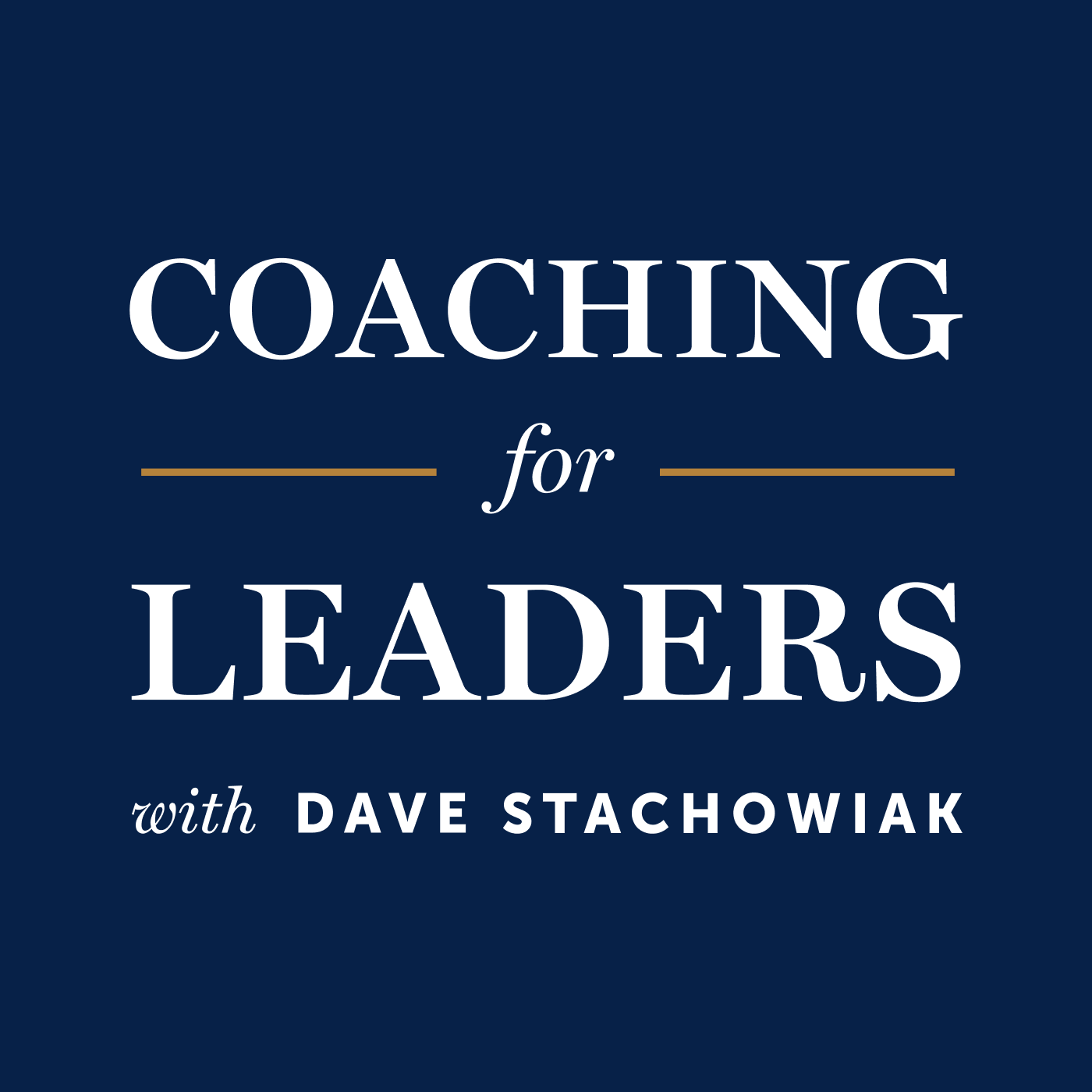

Coaching for Leaders
Dave Stachowiak
Leaders aren’t born; they’re made. Many leaders reach points in their careers where what worked yesterday doesn’t work today. This Monday show helps leaders thrive at these key inflection points. Independently produced weekly since 2011, Dr. Dave Stachowiak shares insights from a decade of leading a global leadership academy, plus more than 15 years of leadership at Dale Carnegie. Bestselling authors, proven leaders, expert thinkers, and deep conversation have attracted 50 million downloads and over 300,000 followers. Join the FREE membership to search the entire leadership and management library by topic at CoachingforLeaders.com
Episodes
Mentioned books

28 snips
Dec 21, 2020 • 40min
505: Your Leadership Motive, with Patrick Lencioni
Patrick Lencioni, founder of The Table Group and bestselling author, dives into the core motivations behind leadership. He discusses the stark difference between reward-centered and service-oriented leaders, revealing five critical omissions that can hinder effectiveness. The conversation emphasizes the importance of difficult conversations and managing team dynamics. With insights on over-communication and understanding individual strengths, Lencioni challenges leaders to reflect on their motives and embrace authentic leadership for better organizational health.

Dec 14, 2020 • 37min
504: How to Support Belonging, with Julia Taylor Kennedy
Julia Taylor Kennedy, Executive Vice President at Coqual, dives into the crucial concept of workplace belonging. She discusses how even slight increases in belonging can boost employee loyalty and engagement. Julia highlights the disparities in belonging scores among various demographics, emphasizing the need for accountability and action from leaders. She calls for authentic inclusion practices and the importance of inviting diverse voices into the conversation for real social change. Tune in for actionable insights to enhance organizational culture!

Dec 7, 2020 • 36min
503: Improving Organizational Culture, with Bonni Stachowiak
Listeners dive into the nuances of assessing and improving organizational culture. The discussion emphasizes the importance of leadership buy-in and transparent practices. Key insights on cultivating inclusivity and storytelling as core values are shared. There's also a fascinating segment on technology for enhancing productivity, featuring secure password management tools and methods for rediscovering key insights from reading. Overall, this conversation offers actionable strategies for leaders aiming to foster a thriving workplace culture.

Nov 30, 2020 • 32min
502: The Way to Build Wealth, with Chris Hogan
Chris Hogan, a best-selling author and personal finance expert, dives into the world of wealth building. He unpacks findings from a national study on everyday millionaires, revealing that the most common millionaire professions include engineers and teachers. Hogan explains that millionaires are often frugal and avoid debt, embracing a growth mindset that views challenges as opportunities. He emphasizes the importance of employer-sponsored retirement plans and dispels myths about inheritance, demonstrating that wealth is achievable for anyone willing to change their mindset.

Nov 23, 2020 • 35min
501: How to Build a Coaching Culture, with Andrea Wanerstrand
Andrea Wanerstrand, a seasoned leadership coach at Microsoft with over 15 years of international experience, dives into the transformative power of coaching cultures. She explores Microsoft’s journey towards a 'learn-it' mindset, shifting from traditional management to supportive leadership. Andrea highlights the link between coaching practices and organizational success, including increased revenue, and discusses innovative training strategies, such as micro-learning and ongoing community engagement, that empower employees and elevate performance.

10 snips
Nov 16, 2020 • 38min
500: Four Habits That Derail Listening, with Oscar Trimboli
Oscar Trimboli, a mentor and former Microsoft director, discusses the four habits that derail effective listening. He highlights the 'Dramatic Listener' who gets lost in emotion, the 'Interrupting Listener' who jumps in too soon, and the 'Lost Listener' who zones out, often distracted by technology. Oscar emphasizes the importance of focusing on feelings and how things are said, rather than just the words. Listeners are invited to reflect on their own habits and learn practical strategies to enhance their listening skills.

9 snips
Nov 9, 2020 • 34min
499: The Way to Make Better Decisions, with Annie Duke
Annie Duke, a former professional poker player turned decision-making expert, joins the conversation to share valuable insights on how to improve choices. She critiques the traditional pro/con list, advocating for decision trees that map out outcomes and probabilities. Duke emphasizes the importance of reducing biases by leveraging independent thinking in group settings. She also highlights the power of negative thinking in anticipating challenges, allowing for more strategic preparation. Transform your decision-making skills with her practical tips!

Nov 2, 2020 • 27min
498: Creating Management Structure, with Bonni Stachowiak
Discover frameworks to enhance management strategies tailored for entrepreneurs. Learn effective ways to manage personal frustration and develop emotional resilience. Explore how to measure the impact of partnerships beyond profits, focusing on shared values and resource commitment. Dive into insights about B Corporations and their role in social responsibility. The discussion offers practical resources and reflections on leadership that can drive organizational success.

16 snips
Oct 26, 2020 • 40min
497: The Way Into Difficult Conversations, with Kwame Christian
Kwame Christian, Director of the American Negotiation Institute and seasoned business lawyer, shares his expertise in negotiation and conflict resolution. He introduces the compassionate curiosity framework for effective dialogue, stressing the need to acknowledge emotions and approach problems collaboratively. Kwame emphasizes the value of preparation and leads listeners through strategies for discussing sensitive topics, especially in the workplace. He highlights the importance of reframing mindsets during challenging conversations and offers practical advice for fostering understanding.

5 snips
Oct 19, 2020 • 35min
496: How to Generate Quick Wins, with Andy Kaufman
Join Andy Kaufman, a keynote speaker and president of the Institute for Leadership Excellence & Development, as he dives into the power of quick wins in leadership. He discusses how embracing change isn't an adversary but an opportunity for progress. Andy emphasizes the value of quick wins for faster feedback and momentum, advocating for imperfect beginnings over perfection. He explores the importance of agility beyond software, urging leaders to foster a collaborative culture that thrives on communication and iterative success.


